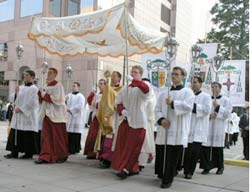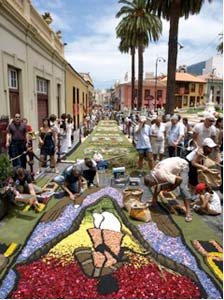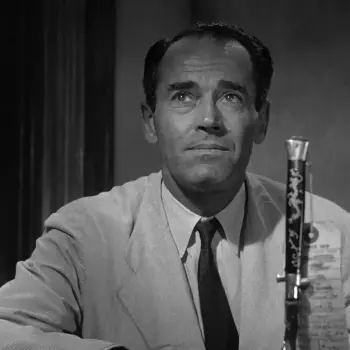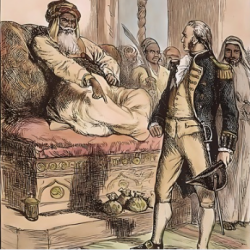By Fr. Mike Boutin

Next Sunday, June 6th, is the Feast of the Body and Blood of Christ, traditionally known as the Feast of Corpus Christi. Check out these websites to learn more about this feast: http://www.newadvent.org/cathen/04390b.htm
http://catholicism.about.com/od/holydaysandholidays/p/Corpus_Christi.htm
http://www.wf-f.org/CorpusChristi.html
http://www.churchyear.net/corpuschristi.html
The liturgical season is now Ordinary Time: not as in contrast to "extraordinary" time, since all time in Christ is extraordinary. Instead, we call it Ordinary Time because the Sundays are "counted" (think ordinal numbers). The color for Ordinary Time is green, but the first two Sundays of Ordinary Time are special solemnities (Trinity on 6/7 and Body and Blood of Christ on 6/14), and so the liturgical color is white or gold. The solemnity of the Feast of the Body and Blood of Christ has been traditionally celebrated on the Thursday after the Feast of the Pentecost, but is now celebrated on the Sunday after the Feast of the Trinity.
"Lauda Sion" http://en.wikipedia.org/wiki/Lauda_Sion, written by St. Thomas Aquinas, is prescribed as the sequence that may be sung today after the Second Reading and before the singing of the Alleluia.
It is strongly recommended that at the end of Mass, the liturgy concludes with a Eucharistic procession through the streets of the community, so that we make visible what we believe: that we eat his Body and drink His Blood so that we might bring Him out into the world.
 In some countries, people make elaborate flower carpets for the outdoor Eucharistic procession. Take a look at how truly beautiful they are, or click here to learn more.
In some countries, people make elaborate flower carpets for the outdoor Eucharistic procession. Take a look at how truly beautiful they are, or click here to learn more.
Click here for next Sunday's readings.
Here are a few good sites for exegesis (an explanation of what the biblical texts are trying to say):
General Intercessions (Prayers of the Faithful):
The general intercessions at Mass should be written in the community that will pray them. Don't rely on canned prayers. Your community deserves someone who will pray about what this particular community's needs are this week, and then help them to articulate their needs and the needs of the larger community.
General intercessions should be just that: general enough that everyone can pray them. Prayers for the world, for the local community, for the sick, for peace, and for the dead should be numbered among the prayers you articulate. Adding a list of the local sick and deceased is a good way to make these prayers the prayers of this local community. Here are some general principles and a good example of general intercessions for next Sunday.
When I am preparing to preach, my process includes a number of pieces: 1) prayer with the scriptures 2) a weekly Bible study with parishioners on Tuesday morning that forces me to interact with the texts before Friday! 2) looking at a few different "homily helps" not in order to use a canned homily (honestly, I've never done that), but instead, sometimes to find a different angle, or a starter story, or some particularly useful insight.
The sources I use include:
- The Preachers' Exchange is a great website for Catholic preachers, by Jude Siciliano, OP. Well worth adding to your Favorites list.
- Celebration, published by NCR, is my favorite homily preparation type service, though it describes itself as a "comprehensive worship resource." It is an ecumenical and multi-cultural resource, has very fine scriptural scholarship and homily starters, interesting and useful articles and features, a daily Mass supplement. Overall, a lot of liturgical and preaching bang for your hard-earned buck!
- Prepare the Word is an online resource published by True Quest, whose strongest asset is Alice Camille, one of its writers, but whose weakest link is customer service and subscriptions.
- Connections, published by Media Works and edited by Jay Cormier, is a great resource: a couple of short stories, fables, news events that relate (some more, some not quite so much!), but which provide only a springboard for your own preaching...




